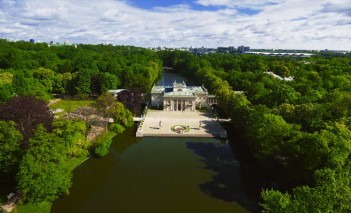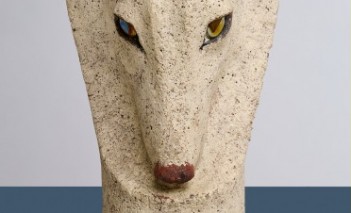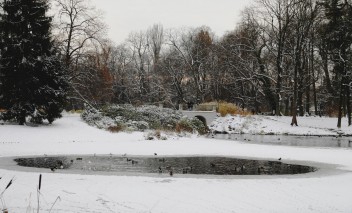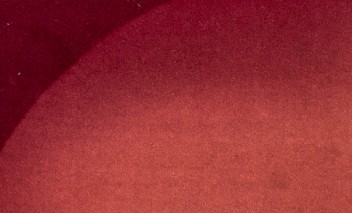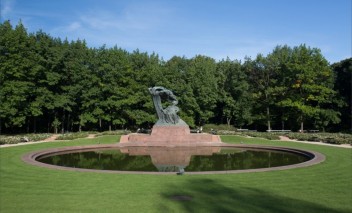In the Palace on the Isle about Europe and its relations with Russia and Ukraine
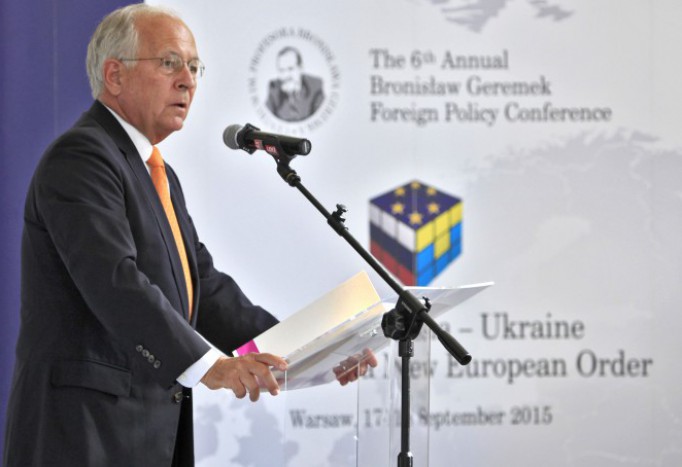
Political scientists, theoreticians and practitioners of international relations and specialists in Russia and Ukraine took part in a two-day conference "Europe-Russia-Ukraine" in the Royal Łazienki. The meeting, which can also be watched in the Virtual Museum, was organised by Professor Bronisław Geremek Foundation Centre.
I hope that this conference will become part of the tradition of dialogue and good atmosphere which prevails in the Royal Łazienki - said Tadeusz Zielniewicz, Director of the Royal Łazienki. Greeting the guests in the Palace on the Isle, he reminded that the Museum is a place which was many times visited by Polish, Russian and Ukrainian political leaders.
In recent years, Łazienki hosted meetings of, among others, presidents Dmitry Medvedev and Bronisław Komorowski, prime ministers Donald Tusk and Mykola Azarov, and also ministers of foreign affairs Radosław Sikorski and Sergey Lavrov.
The theme of the first day of the conference was the attitude of the European Union in face of the Ukrainian crisis. The debate was opened by diplomat and political scientist professor Adam Daniel Rotfeld and Wolfgang Ischinger – German lawyer and former Ambassador of Germany to USA. In their view, the events of the last year, including the armed conflict in the east of Ukraine, have significantly changed the relations between Russia, Ukraine and the European Union.
A new era began, in which we need a new strategy for the European Union. Such a strategy should consist in a fundamental change in the existing policy towards what is happening outside the UE. The internal cohesion of the European Union needs to be strengthened too - stressed Wolfgang Ischinger. In his opinion, UE countries must as soon as possible improve joint actions not only in the aspect of rhetoric, but also in the political and military dimensions.
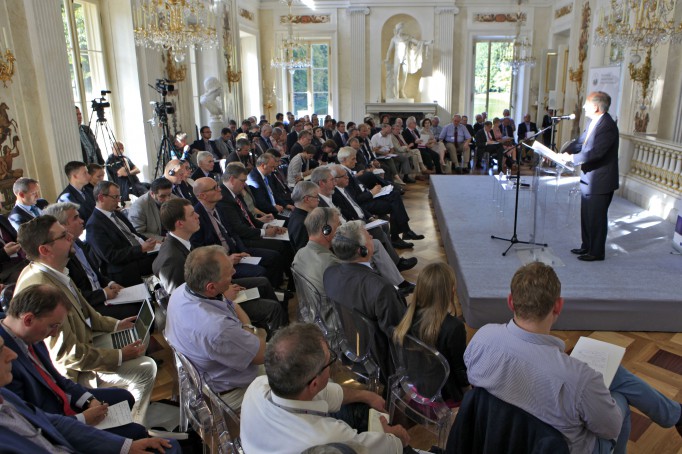
On this occasion, the German diplomat reminded the words of the President of the European Commission Jean-Claude Juncker, who in his speech on the State of the Union said that ‘there is not enough Europe in this Union and there is not enough Union in this Union’. Wolfgang Ischinger referred these words not only to the issue of the conflict in Ukraine, but also to the problem of refugees from Syria.
The crisis involving migration of refugees from Syria may potentially threaten the internal unity of the Union. This is, among other things, the risk of exiting the EU by Great Britain, which may lead to a serious political upset in my country too - explained the diplomat who also called for a stronger support for Turkey and Lebanon, where most of Syrian refugees are currently staying. A stronger unification within the European Union is our most vital challenge. In this way, we will not only influence Russia, but also impress out friends in the United States – concluded Wolfgang Ischinger.
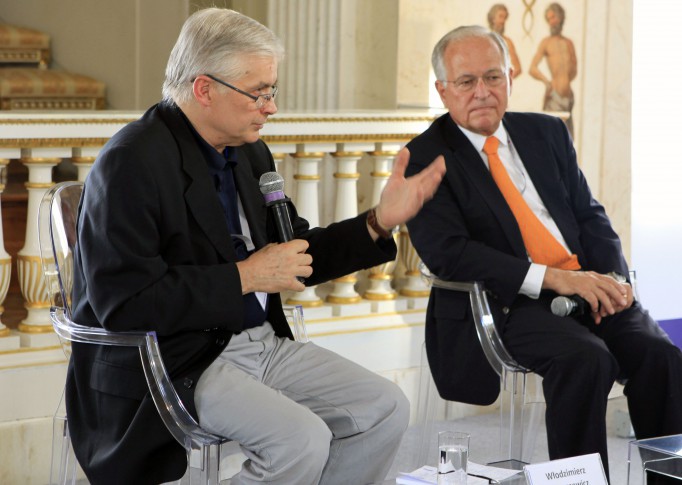
After the talk of the German diplomat the debate was led by the former prime minister and minister of foreign affairs Włodzimierz Cimoszewicz. The Russian aggression in Ukraine, which took place last year, made me fear for the future for the first time in my life. When politicians or generals speak about war it is one thing, but when ordinary people share opinions concerning threats and fear for their future, it becomes a serious issue - stressed Włodzimierz Cimoszewicz.
The guests who attended the conference included, among others, the former speaker of the Senate, Bogdan Borusewicz. Questions of the audience related, among other things, to the extension and effectiveness of sanctions against Russia, but also to the problem of egoistic attitude of UE countries, whose identities are still largely determined by the idea of a national state.
During the first day of the conference a debate about the “West and the Ukrainian crisis” was planned; it was led by Aleksander Smolar. Researchers, including Adam Kobieracki (Poland), William Pomeranz (USA) and Anton Barbashin (Russia) debated such issues as: the end of post-Cold War European order, Euro-Atlantic security and the Russian-Ukrainian conflict, the political, economic and military context (reactions of NATO and UE), the challenge for the European unity.
Russia has something that the West does not have, namely it is ready to use force or at least it is ready to intimidate others using force. It should be always borne in mind that the West cannot afford such an attitude. I believe, however, that there is no immediate danger of a direct confrontation in the Russia-NATO relations - said Anton Barbashin, politician and international affairs expert from the State Higher School of Economy and Management in Novosibirsk.
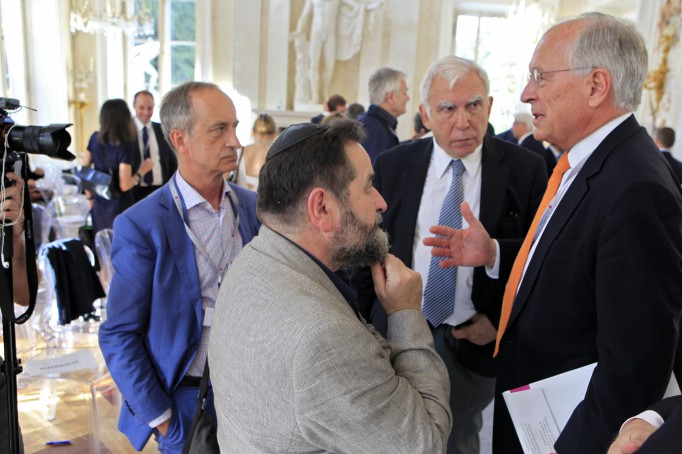
Defence and military issues, the hybrid war, the Russian domestic and international propaganda, the public opinion and the war, and possible scenarios were topics which the experts took up on the second day of the conference. During the debate “Russia and Ukraine: a New Type of Conflict”, the Ukrainian diplomat Vasyl Filipchuk stressed that despite the Minsk peace agreement, people are still dying in the east of Ukraine. We are over half a year after Minsk and there were only two days without victims. It is a true war, as any other one. Let us remember that it is not a Russian-Ukrainian conflict but a global one – said Vasyl Filipchuk.
His view was shared by Kateryna Smagliy from the Kennan Institute in Kiev; she stated that the main obstacle preventing dialogue of Ukrainians with Russians was the occupation of Crimea by Russia. In her opinion, it is a fundamental issue which makes any debate between the two countries impossible. The expert recalled also that an opinion poll conducted in Ukraine showed that at least 70 per cent of Ukrainians regarded Russia as an aggressor.
During the last debate of the conference “In search of New Euro-Atlantic Security” professor Adam Daniel Rotfeld emphasised that, at present, all the states in UE “speak a lot about the European security but most of them think about their national security". The issue is whether it will be possible to harmonise the national points of view within a common European conception of security. It is not an easy task – said the diplomat and political scientist. He added that developing a common security policy in Europe will require specific concessions from every country.
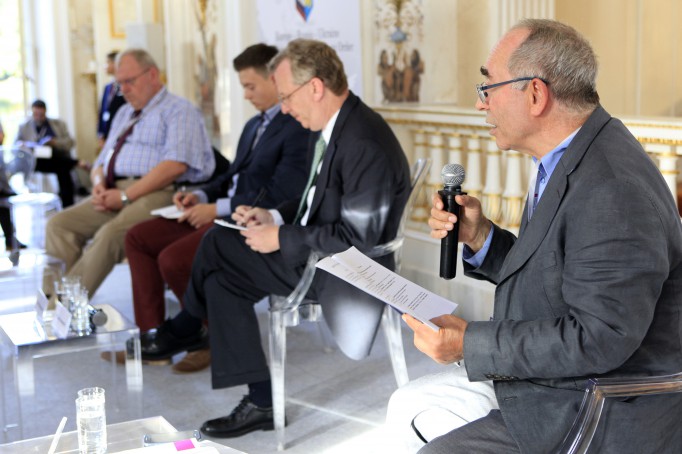
Professor mentioned that despite the conflict in eastern Ukraine, we should contain our emotions and strive to find a diplomatic solution. He explained that breaking diplomatic relations is never a good solution. The dialogue between the Russian ambassador in Kiev and the Ukrainian Embassy in Moscow has intensified. We should see the reality as it is – added professor Adam Daniel Rotfeld.
The former Minister of Foreign Affairs, Radosław Sikorski, also took part in the debate. Referring to the title of the conference (“Europe-Russia-Ukraine. In search of a New European order”) he emphasised that he wasn’t looking for a different European order than the present one. After all, Poland is in the zone of democracy and human rights, peace and security and I am asking myself the question whether we are willing to defend the European order for which whole generations of Europeans made sacrifices – wondered Radosław Sikorski.
The conference “Europe-Russia-Ukraine. In search of a new European Order” was the sixth international meeting in commemoration of Professor Bronisław Geremek. Professor was a historian, activist of the anti-communist opposition, deputy to the Parliament, minister of foreign affairs in the years 1997-2000, and also a member of the European Parliament.

